- Home
- Madeleine L'engle
A House Like a Lotus Page 2
A House Like a Lotus Read online
Page 2
It was in August that Max had said to me, ‘Polly, I had a letter today from a friend of mine, Kumar Krhishna Ghose. Would you like to go to Cyprus?’
Non sequiturs were not uncommon with Max, whose thoughts ranged from subject to subject with lightning-like rapidity.
We were sitting on the screened verandah of her big Greek revival house, Beau Allaire. The ceiling fan was whirring; the sound of waves rolled through all our words. ‘Sure,’ I said. ‘But what’s Cyprus got to do with your Indian friend?’
‘Krhis is going to coordinate a conference there in late September. The delegates will be from all the underdeveloped and developing countries except those behind the Iron Curtain—Zimbabwe, New Guinea, Baki, Kenya, Brazil, Thailand, to name a few. They’re highly motivated people who want to learn everything they can about writing, about literature, and then take what they’ve learned back to their own countries.’
I looked curiously at Max, but said nothing.
‘The conference is being held in Osia Theola in Cyprus. Osia, as you may know, is the Greek word for holy, or blessed. Theola means, I believe, Divine Speech. We can check it with Rhea. In any case, a woman named Theola went to Cyprus early in the Christian era and saw a vision in a cave. The church that was built over the cave and the village around it are named after her, Osia Theola.’
I was evidently supposed to say something. ‘That’s a pretty name.’
At last Max, laughing, took pity on me. ‘My friend Krhis is going to need someone to run errands, do simple paperwork, be a general slave. I’ve offered you. Would you like that?’
Would I! ‘Sure, if it’s all right with my parents.’
‘I don’t think they’d want you to miss that kind of opportunity. Your mother can do without you for once. I’ll speak to your school principal if necessary and tell him what an incredible educational advantage three weeks on Osia Theola will be. It won’t be glamorous, Polly. You’ll have to do all the scut work, but you’re used to that at home, and I think it would be good experience for you. I’ve already called Krhis and he’d like to have you.’
Just like that. Three weeks at Osia Theola in Cyprus. That’s how it happened. That’s the kind of thing Max could do. Now that I thought about it, it seemed likely that Max had paid for my plane fare, too.
The week in Athens, before the conference, was something Max said I shouldn’t miss, and my parents agreed. I had never been to Greece, and they were happy for me to have the opportunity.
We were all less happy about it by the time I left Benne Seed than when the plan was first talked about, Max enthusiastically showing us brochures of Athens and Osia Theola, the museums, the Acropolis. Those last weeks before I flew to Athens, my parents looked at each other when I came into a room as though they’d been talking about me, but they didn’t say anything, and neither did I.
And now I was on a bus, sitting next to a family who were talking loudly in furious syllables. The man wore a red fez, so I assumed they were Turkish, and Turkish is a language I’ve never even attempted. During the drive I began to feel waves of loneliness, like nausea, until I was certain the hotel wouldn’t have a reservation for me, and what then? I certainly wasn’t going to call South Carolina and ask someone to come rescue me.
But I was welcomed, personally, by the manager, and given a message which said the same thing as the one at the airport.
I liked the hotel, which reminded me a little of hotels in Lisbon. But I felt very alone. I followed the bellman to my room. He opened the door, put my bag down on the rack, flung open doors to closets, to a big bathroom, opened floor-length windows to the balcony.
“Acropolis,” he said, pointing to the high hill with its ancient, decaying buildings, and I caught my breath at the beauty. Sounds of the present came in, contradicting the view: bus brakes, taxi horns, the wail of a siren. I stood looking around, first at the view, then at the room, which was comfortably European, with yellow walls, a brass bed, a stained carpet, and an enormous bouquet of mixed flowers on a low table in front of the sofa.
After a moment I realized that I’d forgotten the bellman and that he was waiting, so I dug in my purse for what I hoped was the right amount of money, put it in his hand, saying, “Epharisto.”
He checked what I’d given him, smiled at me in approval, said, “Parakalo,” and left, closing the door gently behind him.
The sunlight flooded in from the balcony, warming me. Despite the heat, I felt an odd kind of cold, like numbness from shock. I unpacked, spreading out notebooks and paperbacks on the coffee table to establish my territorial imperative. No photographs. Not of anybody.
Whenever I stepped out of the direct sunlight, the inner cold returned. And a dull drowsiness. Although I had slept more on the plane than I had expected, it was a long time since I’d actually stretched out on a bed. The early-afternoon sun was streaming across the balcony and into my room, but my internal time clock told me I was tired and wanted to go to bed.
Max had suggested that I get on Greek time as soon as possible. ‘Take a nap when you get to the hotel, but not a long one. Here.’ And I was handed a small travel alarm. ‘I won’t be needing this anymore, and it weighs hardly anything. Sleep for a couple of hours after you arrive, and then go to bed on Greek time. It’ll be easier in the long run.’
I didn’t want Max’s alarm clock, and I didn’t want Max’s advice, no matter how excellent. If it hadn’t been for the telephone, I’d have gone right out, defiantly, and wandered around Athens. But I couldn’t do anything until I’d heard from Sandy and Rhea.
‘Do you still love me?’ Sandy had asked.
‘Of course I do.’
‘It was I who introduced you to Max.’
‘I know,’ I had said.
It all seemed a very long time ago. And yet it was right here in the present. I had crossed an ocean and still I couldn’t get away from it.
The sunlight fell on the bed. I stretched out in its warmth, lying on my side so that I could see the Acropolis. I looked across twentieth-century Athens, across hundreds of years to a world long gone. To the people who lived way back when the Parthenon was built, who worshipped the goddess Athena, what had happened to me wouldn’t be very cosmic. To the other people in the hotel, also maybe looking out their windows from the present to the past, it wouldn’t seem very important, either.
‘It’s all right.’ Sandy had his arms about me. ‘You have to go all the way through your feelings before you can come out on the other side. But don’t stay where you are, Polly. Move on.’
There was a knock on the door, and I realized I had been hearing Sandy’s voice in a half dream. I sat up.
“Who is it?”
“Some fruit, and a letter for Miss O’Keefe.”
I opened the door to a young uniformed man who bore a large basket of fruit, which he put down on the dresser. “With the compliments of the manager.” He handed me an envelope. “We neglected to give you this when you arrived.”
“Epharisto.” I shut the door on him and ripped open the envelope. One page, in the familiar, strong, dark handwriting. “Polly, my child, take this week in Athens in the spirit in which it is given. Forgive me and love me. Max.”
I crumpled up the letter. Flung it at the wastepaper basket. The phone jangled across my thoughts.
It was Sandy, sounding as close as when he called at home, ringing South Carolina from Washington.
“Polly, you’re there!”
“Sandy, where are you? What happened?”
“Still in Washington. An emergency. Sorry, Pol, but in my line of work you know these things do happen.”
His work has more to it than meets the eye. He and Rhea don’t just work with big corporations and their international deals. It’s top-secret kind of stuff, but I know it has something to do with seeing that underdeveloped nations don’t get ripped off, and when tensions rise in the Middle East or South America or Africa they’re often sent there to ease things. Rhea and Mother are close f
riends, and I have a hunch she tells Mother a good bit, but the most I’ve ever got out of Mother was an ambiguous ‘They’re on the side of the angels.’
I said to Sandy, “I know these things happen, but are you going to come?”
“Of course we’re coming. I’ll be dug out by Monday night, with Rhea’s help, and we’ve changed our flight to Tuesday. We should be with you in plenty of time for dinner, three days from now. Will you be all right?”
“Sure,” I said without much conviction. But Sandy always makes me feel that I can manage anything, and I didn’t want to let him down. “Do Mother and Daddy know?”
“Do you want them to?” he asked. It was a challenge.
I accepted it. “No. They might worry.” Funny. We’ve been given a lot of independence in many ways, we’ve had more experience than a lot of kids, and yet we’re also in some ways very overprotected. They would worry.
“Do you have enough money?” he asked.
“Max gave me three hundred dollars in traveler’s checks. Daddy gave me two hundred. I’m rolling in wealth.”
“Good. Don’t blow it all the first day. But make a reservation on the roof restaurant of your hotel tonight, and just sign for your dinner. There’s a superb view.”
“There’s a superb view from my room,” I said. “I can see the Parthenon.”
“Good. Max is an old friend of the manager. I knew you’d get one of the best rooms.”
“It’s very European and comfortable. Sandy, it’s got to be expensive.”
“Forget it,” he said briskly. “It’s peanuts to Max. Check with the concierge and get yourself a ticket for a bus tour or two and see the sights. Don’t waste these days till Rhea and I join you.”
“I won’t. I’m not a waster, you know that.”
“That’s my Pol. You all right?”
“I’m fine,” I said, which meant, I accept your challenge, Sandy. I’ll be fine in Athens on my own. I’m not a child.
“See you Tuesday,” he said. “I love you, Polly.”
“I love you, too. See you.”
When we hung up, I lay down on the bed, fighting the tears which Sandy’s voice had brought rushing to my eyes. Sandy believes that things have meaning, that there are no coincidences, so I had to suppose there was some meaning to his being detained in Washington. Maybe it was to knock my pride down, to remind me that I might have seen a good bit of the world but I’d never been completely on my own before.
I went into the bathroom and took a hot, soaky bath; wrapped myself in two large, thick towels and sat at the open window to dry and look at the view. In the distance the Acropolis and the bright stones of the Parthenon were dazzling. In the foreground were the streets of Athens, with tropical trees which reminded me of home.
When I was dry I put on a cool cotton skirt and top and looked at my watch, which I’d changed to Greek time on the plane. Just after 2 p.m. I went to the balcony again to set myself in time and space.
The great city was spread out before me. And I wondered: What do the old gods, the heroes in the Iliad and the Odyssey, think of the cars and buses and gas-and-oil-smelling streets of today, or the modern hi-rise buildings going down to the harbor and stretching up the mountainsides? Piraeus, the port, and Athens are one vast city. In the days of Homer, what did all this look like? Were there great plains between the city and the harbor?
I went down to the lobby and made a reservation for dinner on the roof. The restaurant didn’t open till eight, and the concierge looked at me as though he thought I was gauche when I asked for an eight o’clock reservation, so I put on my most aloof look and told him that I had jet lag and wanted to get to bed at a reasonable hour, which, after all, was true. Then I checked on Sandy and Rhea’s reservation, and of course they’d already taken care of changing it. I asked about tours, but there were so many I decided I was too tired to choose until I’d had a good night’s sleep, and I just went out of the hotel and across to Constitution Square.
I passed three evzones. Rhea had talked about them—Greek soldiers still dressed in the same colorful costumes they wore in Turkish times, white-skirted tunics with vivid splashes of red. They were marching briskly along, looking ferocious, and suddenly I had a police-state kind of feeling. But all around me everybody was bustling, hardly turning to stare, and I heard a lot of American accents and saw women in pants, which I should have thought would be too hot in this weather, and men with cigars—the ugly Americans Max had talked about. We didn’t see that many Americans when we lived on Gaea, but we were in Lisbon often enough for me to have to face the fact that we aren’t very much loved. Most of the shops around Constitution Square seemed to be entirely for the benefit of American tourists, junky gift shops, phony icons, sleazy clothes, and pictures of American credit cards on the glass fronts of the doors. One souvenir shop had a sign reading, “Welcome, Hadassah,” and was recommended by some Jewish Association. I wouldn’t have been surprised to find a shop window with a commendation by the Pope, or another by the World Council of Churches. I didn’t like it. But that was judgmental of me. I still didn’t like it.
Most of the Americans seemed to be clustered in the cafés on the sidewalks across from the Square. There was one big café which appeared to be used exclusively by kids my age, or not that much older, all dressed exactly alike in jeans, with backpacks which were dumped on the ground by their tables. In the Square itself, where I went to sit, there were some Americans, but also many Greeks, relaxing and drinking coffee and reading papers.
The light was the way Sandy and Rhea had described it, blue and gold, alive with color. I’d thought they were just rhapsodizing, and that nothing could beat the blue and gold of south Portugal and Gaea, but this was really different, more dazzling, with a quality of brilliant clarity, so that I could almost see Apollo driving the chariot of the sun across the sky. And in this light I could believe in Pallas Athena, could see her eyes, the same blinding blue of the sky.
Max said my eyes were that color, and that’s unusual in carrottops.
Max was, theologically, heterodox. Religion, Max said, is divisive, and went on to cite the horrors going on between Christians and Moslems in the Middle East, between Hindus and Buddhists in Sri Lanka, between Protestants and Catholics in Ireland. If we could forget religion, Max said, and remember God, we might have a more reasonable world.
Max liked reading aloud, and had read to me from books written in the very early days of Christianity, works by Gregory of Nyssa and Basil the Great and Clement of Alexandria, because their world was like ours, changing rapidly, with the Roman Empire falling apart around them.
‘Listen to this,’ Max said one winter night when we were eating supper in front of the library fire and the northeast wind was beating against Beau Allaire. ‘Clement of Alexandria:
Now the fables have grown old in your hands,
and Zeus is no longer a serpent, no longer a
swan, nor an eagle, nor a furious lover.
Isn’t that superb?’
I turned away from Max in my mind. No more furious lovers. I was no Semele.
Max’s house, Beau Allaire, is built of soft pink brick and surrounded by three-story white verandahs, a house built for shade and breeze. It is at the far end of Benne Seed Island from our house, just past Mulletville, which used to be a functional fishing village till a developer came in and started an expensive housing development, now that islands are becoming status symbols. It’s a cocktail-partying place, cheek by jowl with what’s left of the original village. There’s a causeway from Mulletville to the mainland, and a school bus comes to take the development kids to Cowpertown—those who don’t go off to boarding school. Beau Allaire is set on a hundred acres, but even so, Max is not happy about the development on what used to be an almost private island.
Between Mulletville and our house are two privately owned plantations and a state wildlife preserve, so we’re moderately isolated. Benne Seed is shaped like a crescent moon, the Mulletville an
d Beau Allaire point of the moon much closer to the mainland than our point. Our house and Beau Allaire are in all ways at opposite points of the compass. Beau Allaire is a great house, often photographed for books on Southern architecture. Our house was once a motel, but Benne Seed is really not a tourist-type island, or we wouldn’t be there. There’s a tricky undertow, and swimming isn’t safe unless you know the waters well.
Mother and Daddy rebuilt the falling-down motel, dividing the rooms so each of us kids would have our own bedroom and there’d be a few extra for the uncles and aunts and other visitors. Mother and Daddy’s bedroom was what had originally been the office and lobby, with a big screen porch off it, facing the ocean. Our rooms were off on either side, and the ocean side was all screens in summer, with enormous storm windows for winter. There were two wings, one for Daddy’s labs, with cases of starfish and lizards and squid and various kinds of octopuses and a medium-size computer for Mother; the other had a big long living room, a big dining room, and a good kitchen. The wings made a kind of court, where we had swings for the little kids, and a picnic table under an ancient water oak. The wood of the house was weathered, so that it was a soft, silvery grey, and behind it were great, jungly trees, full of Spanish moss and mockingbirds. We were fairly high up on the dunes, so there was a long wooden ramp which led down to the beach. It was comfortable and informal.
Beau Allaire was formal. The Greek revival columns rising up the three full stories emphasized the height of the ceilings. It was by far the most elegant of the three plantation houses, and the best kept up. The other two were owned by Northerners who were seldom there and probably used them as tax write-offs. Max has always had several yard men, and a couple living over the garage to take care of things and clean the silver—and everything else of course, but there is a great quantity of silver. All the doorknobs, for instance, are silver. ‘They come from my mama,’ Max said, ‘and I treasure them.’

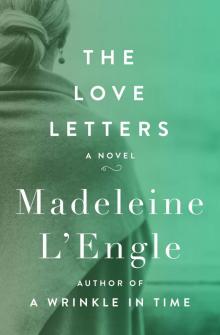 Love Letters
Love Letters The Summer of the Great-Grandmother
The Summer of the Great-Grandmother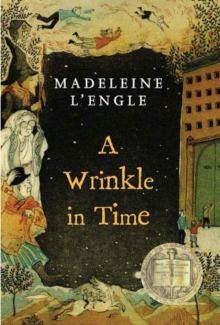 A Wrinkle in Time
A Wrinkle in Time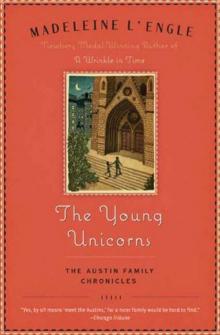 The Young Unicorns
The Young Unicorns Two-Part Invention: The Story of a Marriage
Two-Part Invention: The Story of a Marriage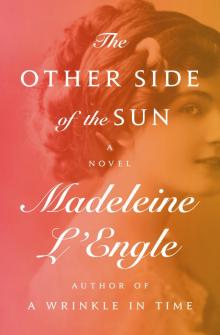 The Other Side of the Sun
The Other Side of the Sun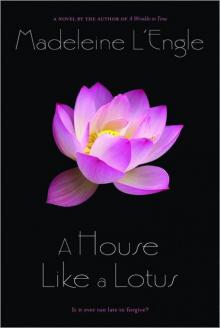 A House Like a Lotus
A House Like a Lotus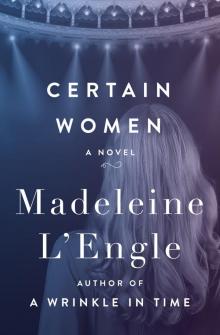 Certain Women
Certain Women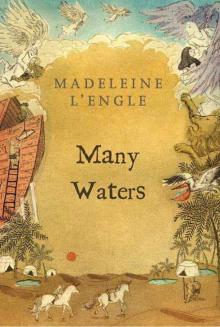 Many Waters
Many Waters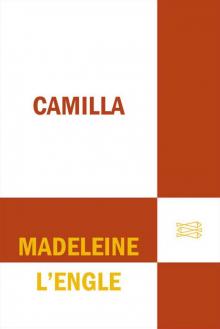 Camilla
Camilla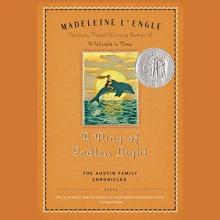 A Ring of Endless Light
A Ring of Endless Light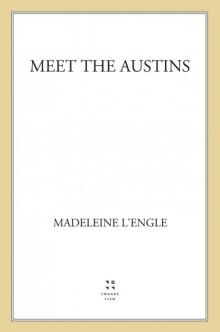 Meet the Austins
Meet the Austins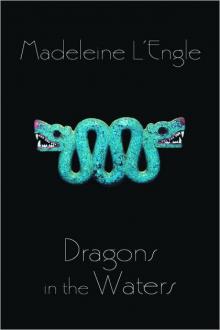 Dragons in the Waters
Dragons in the Waters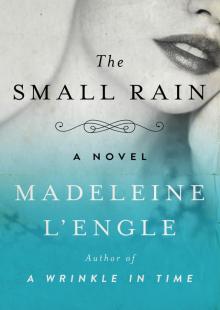 The Small Rain
The Small Rain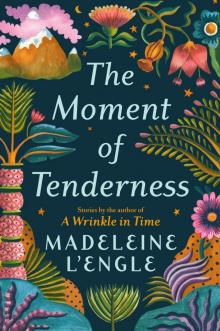 The Moment of Tenderness
The Moment of Tenderness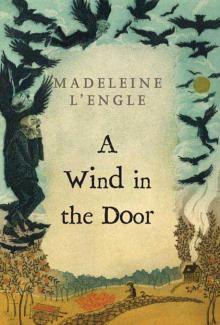 A Wind in the Door
A Wind in the Door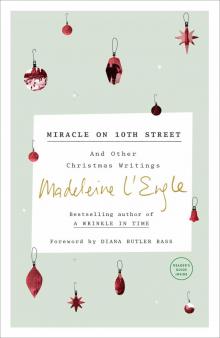 Miracle on 10th Street
Miracle on 10th Street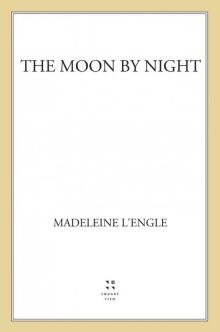 The Moon by Night
The Moon by Night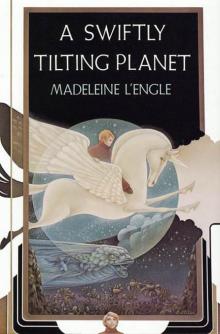 A Swiftly Tilting Planet
A Swiftly Tilting Planet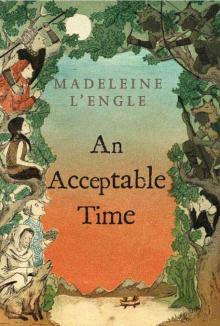 An Acceptable Time
An Acceptable Time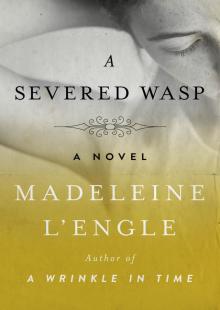 A Severed Wasp
A Severed Wasp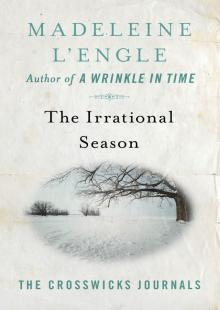 The Irrational Season
The Irrational Season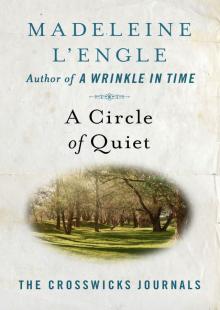 A Circle of Quiet
A Circle of Quiet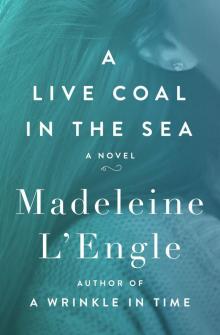 A Live Coal in the Sea
A Live Coal in the Sea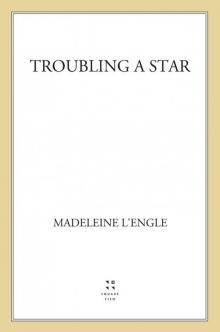 Troubling a Star
Troubling a Star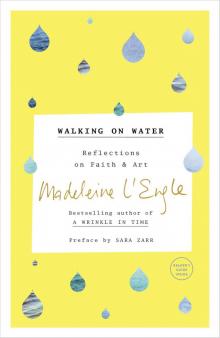 Walking on Water: Reflections on Faith and Art
Walking on Water: Reflections on Faith and Art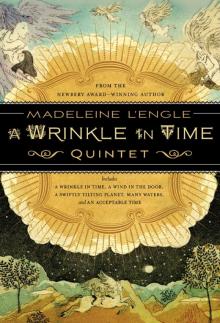 A Wrinkle in Time Quintet
A Wrinkle in Time Quintet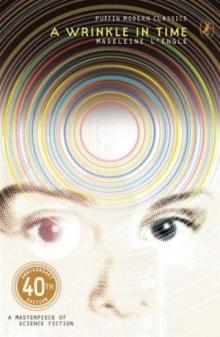 Wrinkle in Time
Wrinkle in Time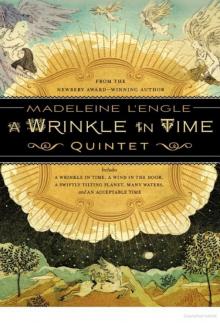 The Wrinkle in Time Quintet
The Wrinkle in Time Quintet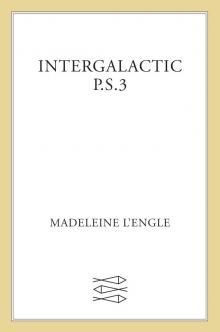 Intergalactic P.S. 3
Intergalactic P.S. 3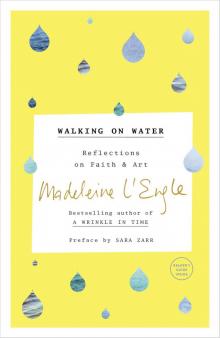 Walking on Water
Walking on Water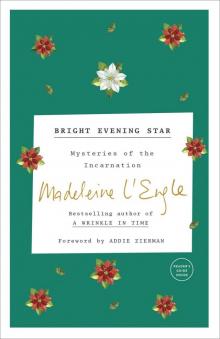 Bright Evening Star
Bright Evening Star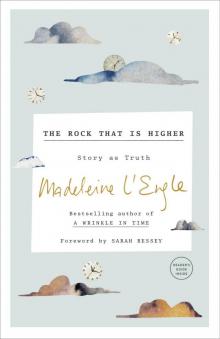 The Rock That Is Higher
The Rock That Is Higher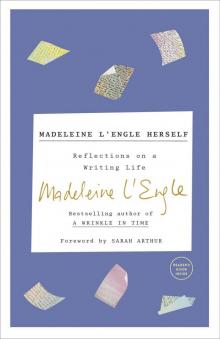 Madeleine L'Engle Herself
Madeleine L'Engle Herself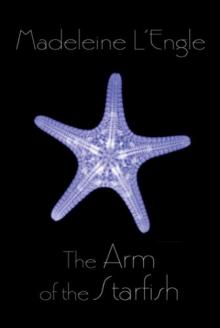 The Arm of the Starfish
The Arm of the Starfish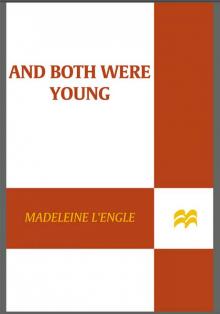 And Both Were Young
And Both Were Young The Twenty-four Days Before Christmas
The Twenty-four Days Before Christmas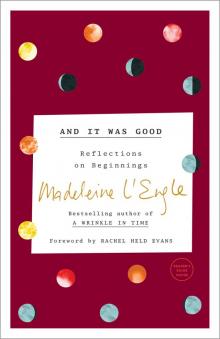 And It Was Good
And It Was Good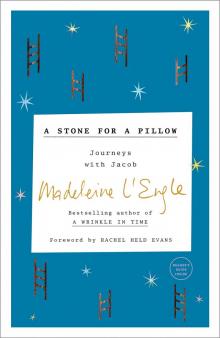 A Stone for a Pillow
A Stone for a Pillow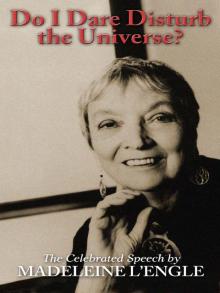 Do I Dare Disturb the Universe?
Do I Dare Disturb the Universe?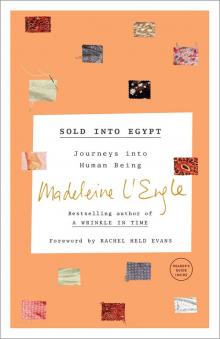 Sold into Egypt
Sold into Egypt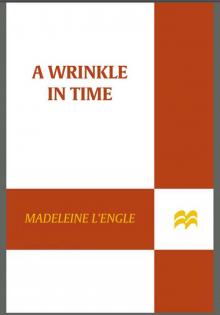 A Wrinkle in Time (Madeleine L'Engle's Time Quintet)
A Wrinkle in Time (Madeleine L'Engle's Time Quintet)